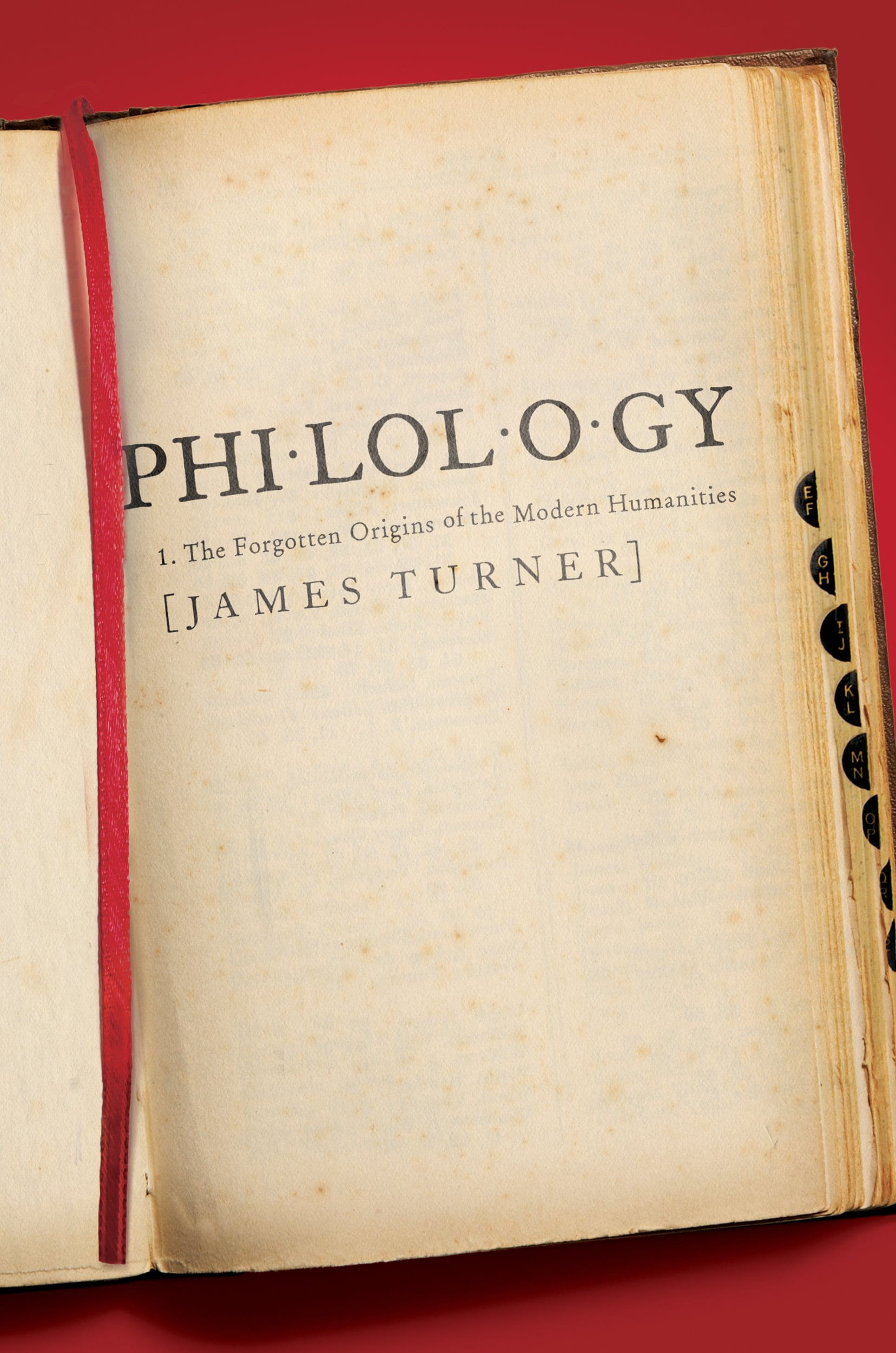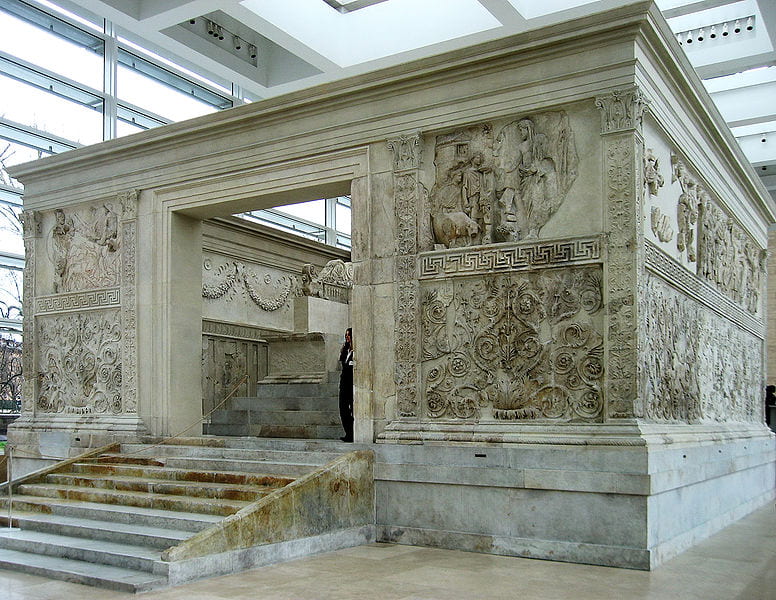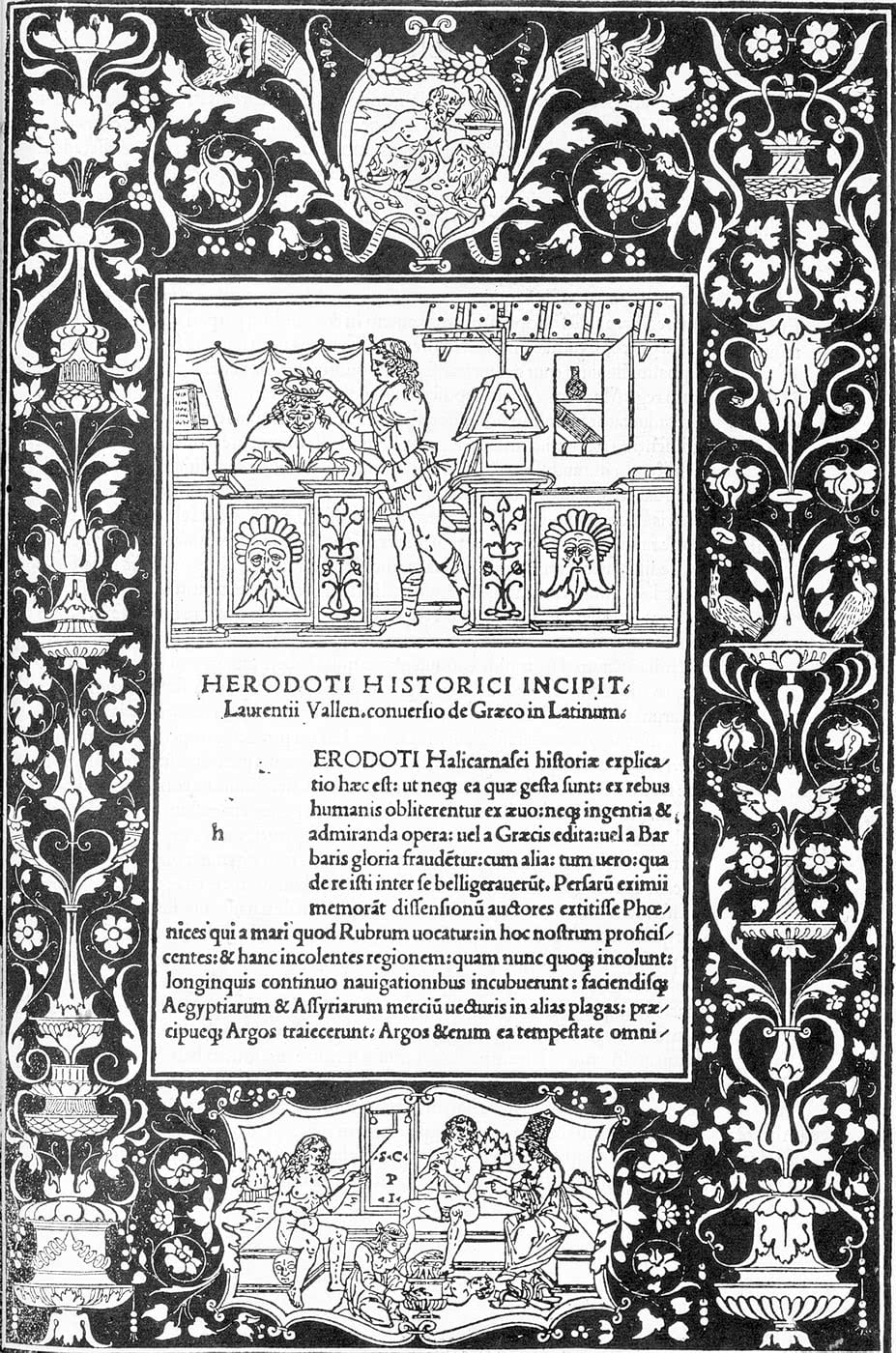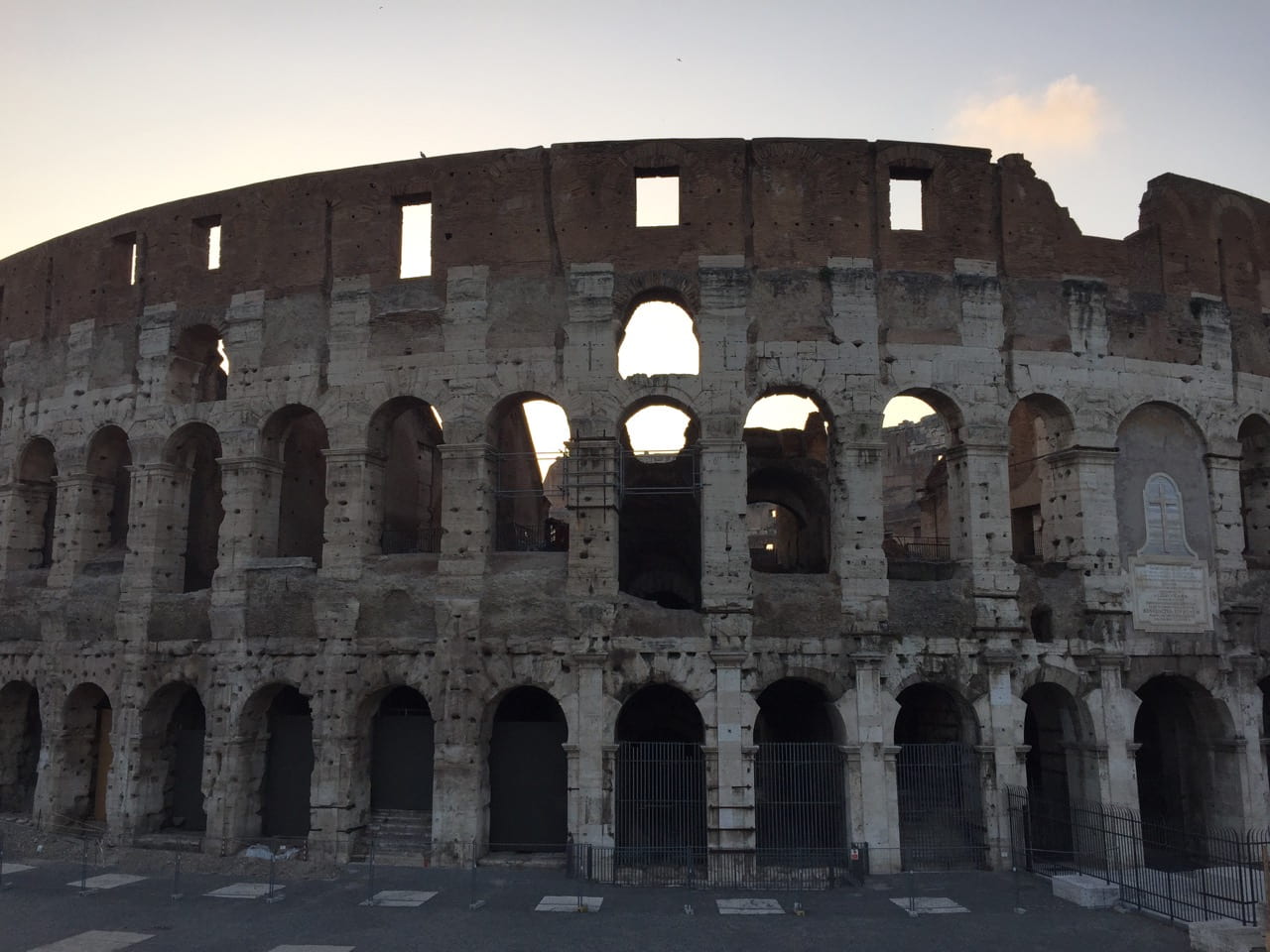by John Raimo
What is philology? The question may be almost perfectly academic, yet more people have begun to ask it. Scholars such as James Turner and Rens Bod argue that philology as a loosely-associated body of practices proved the seedbed of the modern humanities. Jerome McGann and others advocate for a return to “philology in a new key” for literary studies, and the comparative scope of latter day philologists continue to grow. All this activity marks something new in a very old history dating back to the classical world, to say nothing of classical studies: what was once a pejorative roughly on par (and perhaps rightly so) with pedantry now readily finds a larger hearing—and not just in an Anglophone context. Yet what philology meant, means, and holds for all the disciplines remains very much in question.
For this reason a number of senior scholars and graduate students have gathered at the Notre Dame Institute for Advanced Study in Rome for two weeks under the banner “Philology Among the Disciplines.” The seminar organizers deliberately choose the widest ambit for discussion: lectures and seminars have revolved around epistemology, philosophy, exegesis, hermeneutics, traditions, practices, and above all disciplinary histories. In the first week, those entailed archaeology, art history, classics, history, and philosophy. Perhaps it’s to the credit of the discussion that any clear answers may be receding, however. What follows consists then more of my own thoughts and observations as we head into the second week (and a follow-up post later on).
If one thing is clear, it would be that philology can be extended past the textual practices of emendation, collation, and historical semantics often associated with the term. The breaking point is less clear. As per the archaeologist Alain Schnapp, philology becomes almost an ahistorical means of historical reflection. Material remains of one sort or another evoke memories in two directions: a present long past which planned for the future via monuments, coins, and so forth, and the possibility (or at least rhetoric) of a direct connection to the past from our current present. The problem of reconstruction versus memory rears its head, however, to say nothing of dropping what we might call philological rigor in imagining that we can skip over the intervening historical distance. The sheer materiality of stone or of syntax affords this illusion of direct access.
Put another way, there’s no such thing as an isolated ruin, vestige, or trace of the past. Here one might well consider numismatics or the study of currency like ancient coins. Yet this hardly remains a signature delusion of archaeologists. The same goes for texts no matter how thoroughly or obsessively contextualized and reconstructed, the self-aware knowledge of accumulated scholarship (often centuries’ worth) in the best cases non-withstanding.
According to Elisabeth Décultot, the case of Johann Joachim Winckelmann sheds some light on this dynamic. How could philology buttress interpretations of art? Or might it serve to construct universal histories, especially those adjudicating between civilizations and ages? In the case of Winckelmann as well as of the Comte de Caylus and Herder, historians of scholarship can find philology in its capacity as a Hilfswissenschaft or subsidiary discipline of sorts. This might entail claims of societal progress and artistic achievement held on par with a respective language—especially when broaching rather mistier sorts of Ur-origins. Hence for Winckelmann, philology ran parallel to and partly tempered aesthetic experience.
But philology could also simply mean employing philological prowess as a sort of polemical sidearm. Errors of reading could disqualify an opponent; those with little Latin and less Greek still know about this. Philology otherwise evidently proved crucial as means of professional distinction. Winckelmann was not simply a connoisseur practicing on an exponentially broader canvas but rather positioning himself as something like a modern art historian.
A trip to the Ara Pacis in Rome bodied out some underlying issues here. Perhaps especially in looking to classical remains, philology can find itself in the double-traffic between image and text. That is, it serves as a check (rather like the ‘semantic check’ theorized in Begriffsgeschichte) on the range of possible interpretations afforded by historical objects, texts or otherwise. Here philology can run counter to the sort of contextualization amounting to the process of association—often carried to the extent of an object taken to represent the whole of a civilization—and embedding historical traces into external narratives of a certain sort.
Put another way, according to Martin Bloomer, philology presupposes limits as it carries its own. It almost unconsciously entertains hermeneutic presuppositions: that a whole exists to be reconstructed from a fragment, that correct emendations and interpretations exist, that historical unities of style can be discovered, that synecdoche might recover a worldview, that the one best reader (e.g. the most talented linguist) gets to write the commentary and paratext, that monumentality and preservation best serve interpretation. At its best, however, philology can also prove “self-policing” in such a way as to ideally form a toolbox of sorts, namely one comprising practices (emendation, error-detection, &c.) within ‘negative’ or falsifiable and hence professional constraints.
For Suzanne Marchand, the later receptions of Herodotus among historians demonstrated how hard this proves in practice. His unusually complicated text poses more problems (and possibilities) than I can address here. In brief though, what a broader history of the champions and detractors of the same “father of history” and the fantastical “father of lies” demonstrates is that regimes of philological truth exist: that is, Herodotus has been variously held to be accurate or false in different ways at different times, and all of them broadly convincing for period readers.
Where does that leave us? For philosopher Christiane Schildknecht and classicist Glenn W. Most, philology amounts to a renewed focus upon epistemology. For the former, this renews the distinction of propositional from non-propositional knowledge in the act of interpretation. Hermeneutics, aesthetics, and historical scholarship hold equal weight and distinguish different values of truth. For the latter, philology implies a return to the history of science. A ‘top-down’ account of material practices of philology might stand in for the best history. Here one might look to Carl Friedrich Gauss and Karl Lachmann alike: how they came to distinguish between random and systematic errors is one story, but how both came to see that even random errors could be consistent proves another. Such implicit epistemological challenges have never left scientists or scholars in the humanities.
In both Schildknecht and Most’s telling then, philology becomes more a matter of methodological orientation or even self-consciousness. Beyond a body of certain textual practices, philology serves as a willingness to revise theory in light of pragmatic and experimental difficulties rather than vice-versa. Here philology’s polemical value today also comes to light in the age of ‘distant reading,’ the long ascendancy of theoretical schools in various humanistic disciplines, and pedagogical trends and desires. To return to philology’s position today, however, this requires more historical scrutiny than ever. Back-formations of what philology never in truth was easily enough serve for a counter-politics of sorts. Nothing would be further from the historical truth of philology across and between the ages.







June 22, 2015 at 5:31 pm
There was not enough space to treat this question above, but one major question everyone has encountered so far in Rome is just why a philological tradition didn’t further develop in nineteenth century France. As per Antoine Lilti in “Rethinking Modern European Intellectual History” (OUP, 2014), this is one reason why intellectual history developed (is developing?) fairly later in France than elsewhere. Yet if one were to travel back to the late 18th century and guess at any place where philology would develop at a breakneck speed, it would be the France of Mabillon, Montfaucon, and other érudits among so many learned societies, &c. Brad Gregory (Notre Dame) and others have asked whether there’s a history of institutions at play here or if there are larger denominational concerns (i.e. related to Biblical philology) which have to be considered. I would love to hear from our readers out there why not France if Germany above all and most other European countries.
June 22, 2015 at 11:08 pm
This is a very good question–though I suspect it depends in part on what you call philology. One classical response came from Gibbon, who believed that the break in the French tradition was caused by the philosophes were not interested in erudition: “In France, to which my ideas were confined, the learning and language of Greece and Rome were neglected by a philosophic age.” He saw himself as the inheritor of 17th and early 18th-century French erudition, to which he gained access by purchase and reading: “I cannot forget the joy with which I exchanged a bank-note of twenty pounds for the twenty volumes of the Memoirs of the Academy of Inscriptions; nor would it have been easy, by any other expenditure of the same sum, to have procured so large and lasting a fund of rational amusement.” More recently, though, interpreters of the Enlightenment like Dan Edelstein and of its origins like Dmitri Levitin have pointed to the multiple ways in which the thought and work of the philosophes grew from deep roots in the humanistic tradition. As to the 19th century–that raises many questions, from the way in which medieval studies and palaeography became central to technical scholarship in France to the nature of scholarly publishing there. As Pierre Petitmengin and others have shown, a whole group of highly-trained German scholars, from Karl-Benedikt Hase (who worked in the Royal Library, described his encounters with prostitutes in a diary kept in Aristophanic Greek, and wound up at the Ecole des langues orientales vivantes and with a chair at the University of Paris–he also forged a major historical text about the origins of Russia) on, ended up in Paris, mostly as political refugees. But they didn’t transform local traditions. Much to be learned.